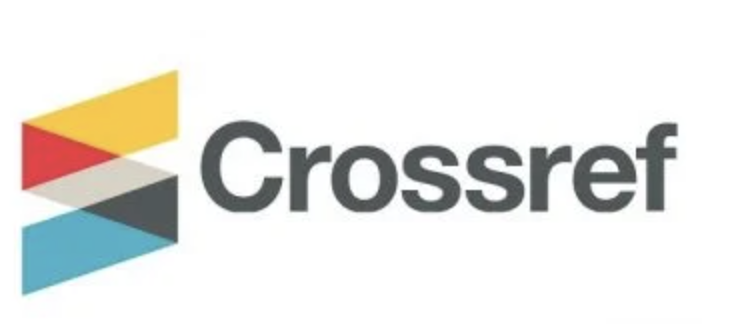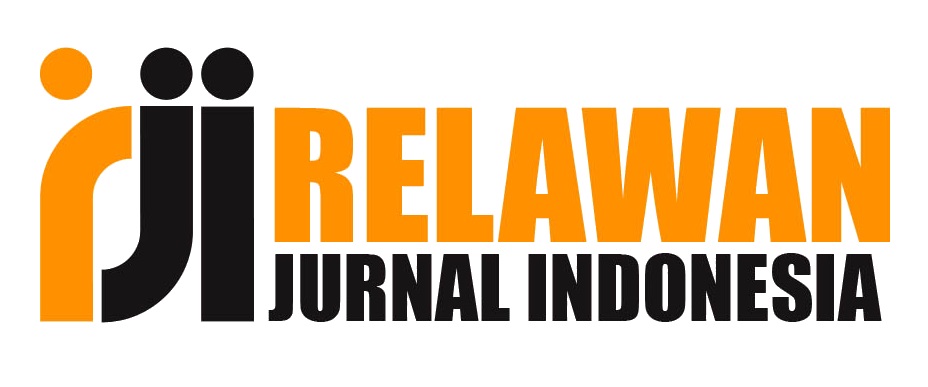Artificial Intelligence Awareness and Readiness among Undergraduate Students in Islamic Higher Education
DOI:
https://doi.org/10.63324/lec.2v.2i.111Keywords:
AI awareness, Higher education, Islamic education, Student perceptionAbstract
This study investigates the levels of awareness and readiness toward Artificial Intelligence (AI) among undergraduate students in Islamic higher education, focusing on English Language Education students at UIN Raden Intan Lampung. Using a quantitative survey design, data were collected from 150 students through a structured questionnaire that measured four dimensions of AI literacy: awareness, usage, evaluation, and ethics. Descriptive and inferential statistics were employed to analyze the findings. The results indicate that students demonstrated relatively high awareness of AI applications, particularly in recognizing its potential for academic support. However, their ability to evaluate AI-generated outputs was limited, with many reporting low confidence in judging accuracy and bias. Usage was moderate, showing frequent reliance on AI tools for grammar correction and information retrieval but without strategic application. Ethical awareness was also moderate, with students expressing concern about plagiarism but less knowledge of issues such as algorithmic fairness and data privacy. Differences were found across year levels and prior AI experience, with senior students and those with exposure outside the classroom displaying higher readiness. The study highlights the urgent need for targeted curriculum reform, faculty training, and institutional policies that integrate AI literacy within an ethical and culturally grounded framework.
References
Al-Abdullatif, A. M. (2025). Auditing AI Literacy competency in K–12 education: The role of awareness, ethics, evaluation, and use in human–machine cooperation. Systems, 13(6), 1–19. https://doi.org/10.3390/systems13060490
Amin, M. Y. M. (2023). AI and Chat GPT in language teaching: Enhancing EFL classroom support and transforming assessment techniques. International Journal of Higher Education Pedagogies, 4(4), 1–15. https://doi.org/10.33422/ijhep.v4i4.554
Andewi, W., Waziana, W., Wibisono, D., Putra, K. A., Hastomo, T., & Oktarin, I. B. (2025). From Prompting to Proficiency: A Mixed-Methods Analysis of Prompting with ChatGPT Versus Lecturer Interaction in an EFL Classroom. Journal of Studies in the English Language, 20(2), 210–238. https://so04.tci-thaijo.org/index.php/jsel/article/view/282318
Antony, S., & Ramnath, R. (2023). A phenomenological exploration of students’ perceptions of AI chatbots in higher education. IAFOR Journal of Education, 11(2), 7–38. https://doi.org/10.22492/ije.11.2.01
Bewersdorff, A., Hornberger, M., Nerdel, C., & Schiff, D. S. (2025). AI advocates and cautious critics: How AI attitudes, AI interest, use of AI, and AI literacy build university students’ AI self-efficacy. Computers and Education: Artificial Intelligence, 8, 1–12. https://doi.org/10.1016/j.caeai.2024.100340
Cardon, P., Fleischmann, C., Aritz, J., Logemann, M., & Heidewald, J. (2023). The Challenges and Opportunities of AI-Assisted Writing: Developing AI Literacy for the AI Age. Business and Professional Communication Quarterly, 86(3), 257–295. https://doi.org/10.1177/23294906231176517
Casal-Otero, L., Catala, A., Fernández-Morante, C., Taboada, M., Cebreiro, B., & Barro, S. (2023). AI literacy in K-12: a systematic literature review. International Journal of STEM Education, 10(1), 29. https://doi.org/10.1186/s40594-023-00418-7
Chang, D. H., Lin, M. P. C., Hajian, S., & Wang, Q. Q. (2023). Educational design principles of using AI chatbot that supports self-regulated learning in education: Goal setting, feedback, and personalization. Sustainability 2023, Vol. 15, Page 12921, 15(17), 12921. https://doi.org/10.3390/SU151712921
Creswell, J. W., & Creswell, J. D. (2018). Research design: Qualitative, quantitative, and mixed methods approaches. Sage .
Delello, J. A., Sung, W., Mokhtari, K., Hebert, J., Bronson, A., & De Giuseppe, T. (2025). AI in the classroom: Insights from educators on usage, challenges, and mental health. Education Sciences, 15(2), 1–27. https://doi.org/10.3390/educsci15020113
Ding, A.-C. E., Shi, L., Yang, H., & Choi, I. (2024). Enhancing teacher AI literacy and integration through different types of cases in teacher professional development. Computers and Education Open, 6, 1–13. https://doi.org/10.1016/j.caeo.2024.100178
Haroud, S., & Saqri, N. (2025). Generative AI in higher education: teachers’ and students’ perspectives on support, replacement, and digital literacy. Education Sciences, 15(4), 396. https://doi.org/10.3390/educsci15040396
Hastomo, T., Mandasari, B., & Widiati, U. (2024). Scrutinizing Indonesian pre-service teachers’ technological knowledge in utilizing AI-powered tools. Journal of Education and Learning (EduLearn), 18(4), 1572–1581. https://doi.org/10.11591/edulearn.v18i4.21644
Helmiatin, Hidayat, A., & Kahar, M. R. (2024). Investigating the adoption of AI in higher education: A study of public universities in Indonesia. Cogent Education, 11(1), 1–15. https://doi.org/10.1080/2331186X.2024.2380175
Hu, W., & Shao, Z. (2025). Design and evaluation of a GenAI-based personalized educational content system tailored to personality traits and emotional responses for adaptive learning. Computers in Human Behavior Reports, 19, 1–12. https://doi.org/10.1016/j.chbr.2025.100735
Jin, Y., Martinez-Maldonado, R., Gašević, D., & Yan, L. (2025). GLAT: The generative AI literacy assessment test. Computers and Education: Artificial Intelligence, 9, 100436. https://doi.org/10.1016/j.caeai.2025.100436
Knoth, N., Tolzin, A., Janson, A., & Leimeister, J. M. (2024). AI literacy and its implications for prompt engineering strategies. Computers and Education: Artificial Intelligence, 6, 100225. https://doi.org/10.1016/j.caeai.2024.100225
Mandasari, B., Basthomi, Y., Hastomo, T., Afrianto, Hamzah, I., & Aminatun, D. (2025). The snapshots of Indonesian pre-service English teachers’ perspectives on integrating technology-based tools to rural schools. Voices of English Language Education Society, 9(1), 42–57. https://doi.org/10.29408/veles.v9i1.27965
Metwally, A. A., & Bin-Hady, W. R. A. (2025a). Probing the necessity and advantages of AI integration training for EFL educators in Saudi Arabia. Cogent Education, 12(1), 1–14. https://doi.org/10.1080/2331186X.2025.2472462
Metwally, A. A., & Bin-Hady, W. R. A. (2025b). Probing the necessity and advantages of AI integration training for EFL educators in Saudi Arabia. Cogent Education, 12(1), 1–14. https://doi.org/10.1080/2331186X.2025.2472462
Narayan, S. (2024). Awareness and familiarity with AI writing tools among media students. LinguaEducare: Journal of English and Linguistic Studies, 1(1), 39–50. https://journal.ciptapustaka.com/index.php/LEC/article/view/5
Rapanta, C. (2025). Postdigital Citizenship Education and Argumentation: Can AI Support Students’ Critical Literacy? In J. Zajda & A. Rapoport (Eds.), Discourses of Globalisation and Citizenship Education. Globalisation, Comparative Education and Policy Research (Vol. 46, pp. 69–86). Springer. https://doi.org/10.1007/978-3-031-86145-1_5
Rožman, M., Oreški, D., Elias, A., Pynadath, M. F., & Tominc, P. (2025). AI Literacy among university students: A comparative study of three countries—Slovenia, Croatia, and India. IEEE Access, 13, 110671–110688. https://doi.org/10.1109/ACCESS.2025.3581128
Safitri, M., & Fithriani, R. (2024). Exploring higher education EFL students’ perception of AI writing tools in the 5.0 era. Cetta: Jurnal Ilmu Pendidikan, 7(1), 267–276. https://doi.org/10.37329/cetta.v7i1.3158
Smolansky, A., Cram, A., Raduescu, C., Zeivots, S., Huber, E., & Kizilcec, R. F. (2023). Educator and Student Perspectives on the Impact of Generative AI on Assessments in Higher Education. Proceedings of the Tenth ACM Conference on Learning @ Scale, 378–382. https://doi.org/10.1145/3573051.3596191
Sumakul, D. T. Y. G., & Hamied, F. A. (2023). Amotivation in AI injected EFL classrooms: Implications for teachers. Indonesian Journal of Applied Linguistics, 13(1), 26–34. https://doi.org/10.17509/ijal.v13i1.58254
Walter, Y. (2024). Embracing the future of Artificial Intelligence in the classroom: the relevance of AI literacy, prompt engineering, and critical thinking in modern education. International Journal of Educational Technology in Higher Education, 21(1), 15. https://doi.org/10.1186/s41239-024-00448-3
Zhang, J., & Zhang, Z. (2024). AI in teacher education: Unlocking new dimensions in teaching support, inclusive learning, and digital literacy. Journal of Computer Assisted Learning, 40(4), 1871–1885. https://doi.org/10.1111/jcal.12988
Zulianti, H., Hastuti, H., Nurchurifiani, E., Hastomo, T., Maximilian, A., & Ajeng, G. D. (2024). Enhancing novice EFL teachers’ competency in AI-powered tools through a TPACK-based professional development program. World Journal of English Language, 15(3), 117–131. https://doi.org/10.5430/wjel.v15n3p117















